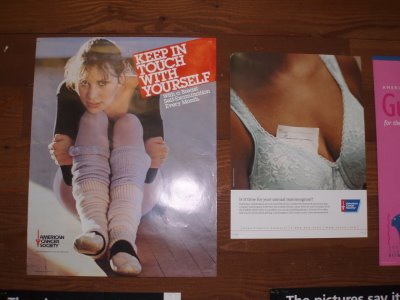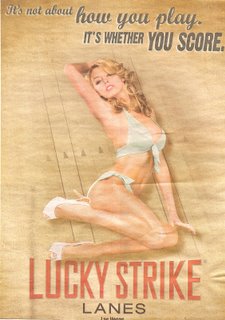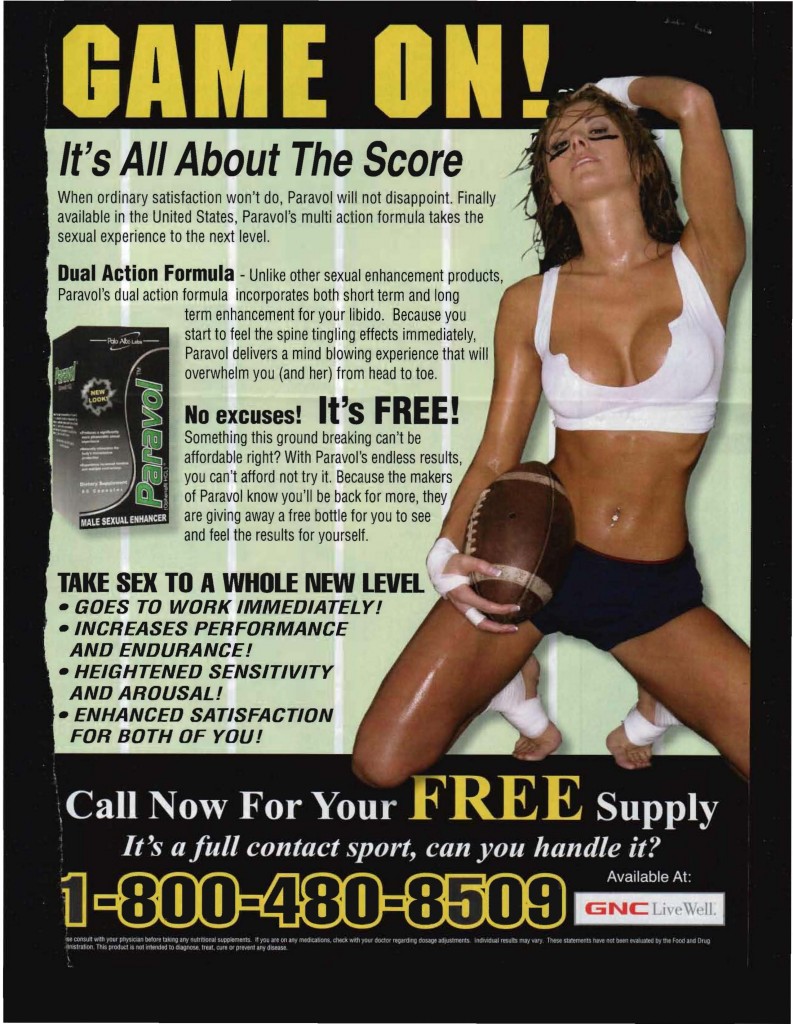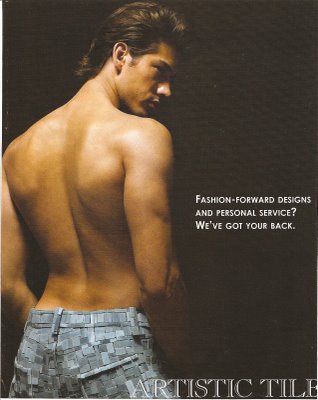
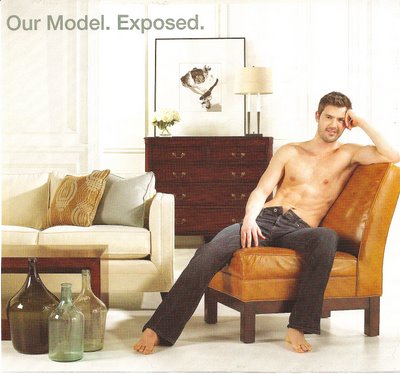
I thought these two images were interesting because they are using sexualized images of men in a magazine called Metropolitan Home. It struck me at first because it’s pretty unusual to find sexualized male bodies used in ads targeting a general audience that might include straight men. Then I started thinking–maybe the fact that it’s in an interior design magazine means advertisers assume the readership is mostly female or, if male, gay, so there is little fear of offending straight men with these types of ads.
.




